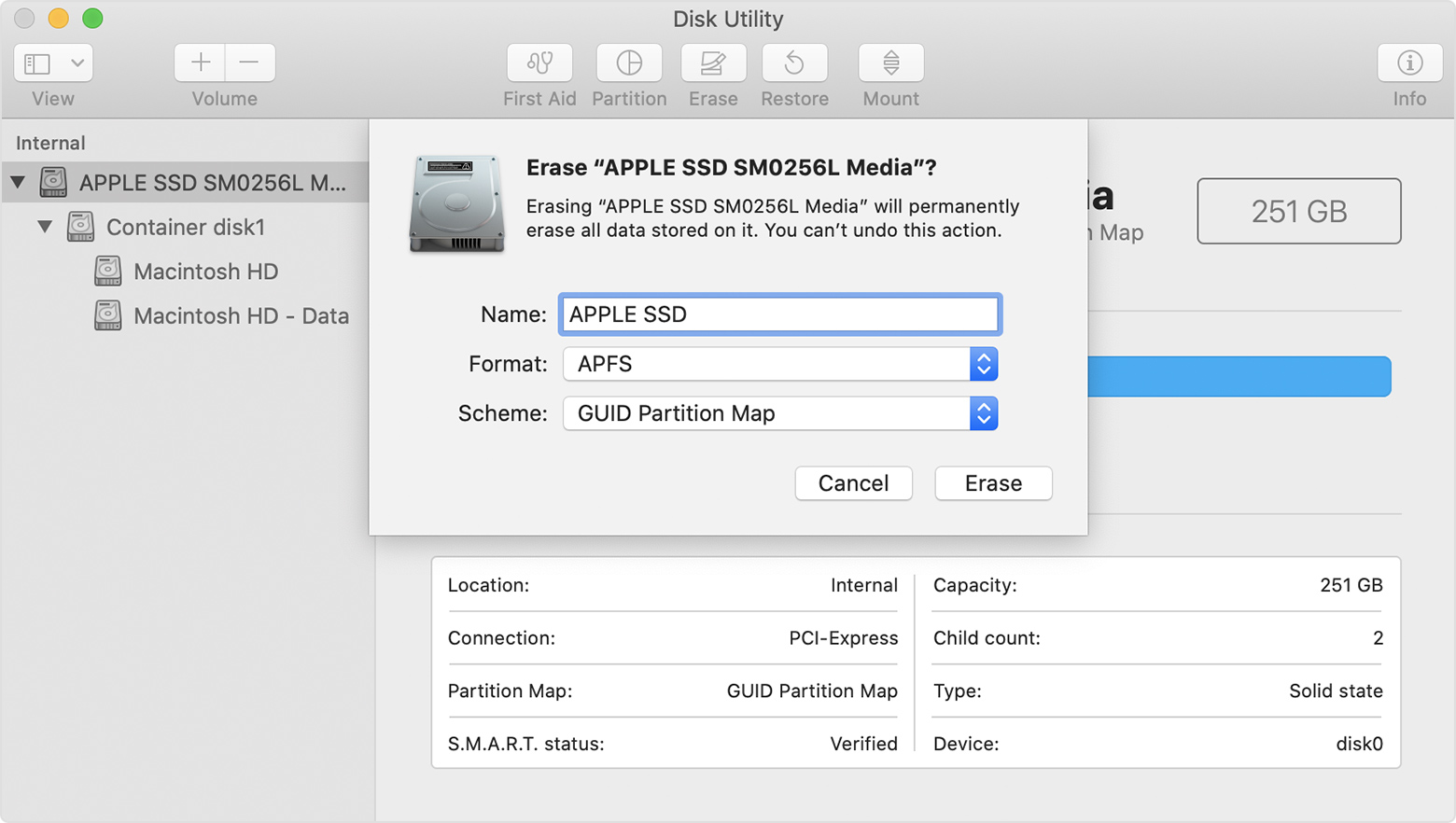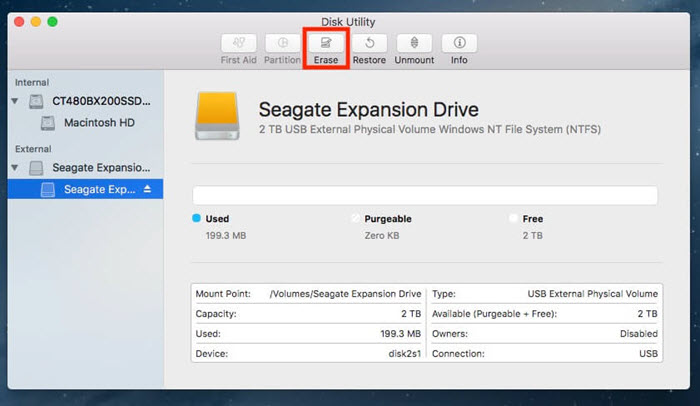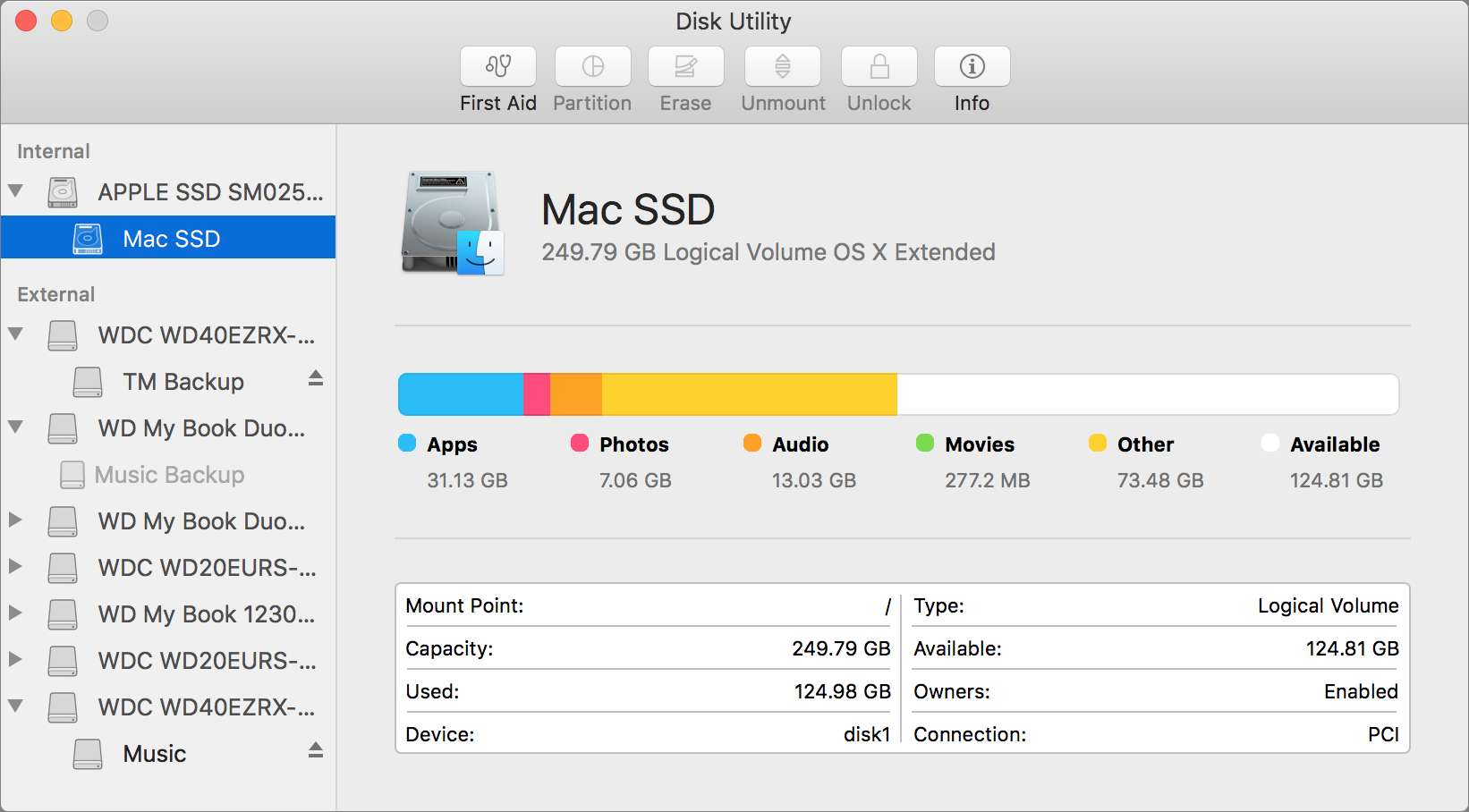

- #Mac disk utility formating hard drive for windows mac os x
- #Mac disk utility formating hard drive for windows install
- #Mac disk utility formating hard drive for windows driver
- #Mac disk utility formating hard drive for windows password
Mac OS X won’t let you create a FAT32 partition larger than 2TB so if your drive is larger than that, you’ll need to divide the available drive capacity into multiple partitions. To format a drive as FAT32 from a Mac, follow these simple steps.Ģ.
#Mac disk utility formating hard drive for windows install
Conversely, Windows 7 can’t read and write to drives formatted as HFS+–also known as Mac OS Extended (journaled)–unless you install third-party software such as Paragon’s.
#Mac disk utility formating hard drive for windows driver
Macs running Snow Leopard or Lion can read from drives formatted as NTFS, but they can’t write to such drives unless you install a third-party driver or muck about in the Terminal. Windows prefers to use NTFS (which stands for New Technology File System, though it has been around for nearly 20 years now). Finally, Mac OS X’s Time Machine backup utility won’t work with FAT32. When formatting partitions, Windows 7’s Disk Management utility won’t let you create one that’s larger than 32GB, whereas Mac OS X Lion can create partitions as large as 2TB using its Disk Utility application. So if you work with bulky video clips, for example, adopting FAT32 may not be a good idea. FAT32 imposes a size limit of 4GB on single files. The chief drawbacks of FAT32 involve file and partition size limitations. Though this format has some limitations, it enjoys nearly universal support from active platforms, including Mac and Windows operating systems, and many gaming and Linux OSs. APM is an older, Mac-only partition scheme.Looking to share an external hard drive between a Mac and PC? The best way to do it is with a drive formatted as FAT32. You’ll also be asked to choose between a partition scheme: GUID Partition Map, Master Boot Record, or Apple Partition Map. RELATED: What's the Difference Between GPT and MBR When Partitioning a Drive? It’s not natively supported on many Linux distributions, but you can install exFAT support on Linux.įor external drives, it almost always makes sense to format in ExFAT, unless you’re using the drive for Time Machine. ExFAT is the ideal cross-platform file system. You should use this file system if you may share the drive with Windows PCs and other devices like the PlayStation 4 and Xbox One consoles.
#Mac disk utility formating hard drive for windows password
You’ll have to enter a password, and you’ll need to provide that password whenever you connect your drive to your Mac. OS X Extended (Journaled, Encrypted): This is the same as the standard OS X Extended file system, but with encryption.This option exists because it matches the traditional behavior of UNIX and some people might need it–don’t select this unless you know you need it for some reason. By default, Mac OS X doesn’t use a case-sensitive file system.

OS X Extended (Case-sensitive, Journaled): On a case-sensitive file system, “file” is different from “File”.This file system is necessary if you plan on using the drive for Time Machine backups–otherwise, you’ll want to use exFAT for maximum compatibility.



 0 kommentar(er)
0 kommentar(er)
